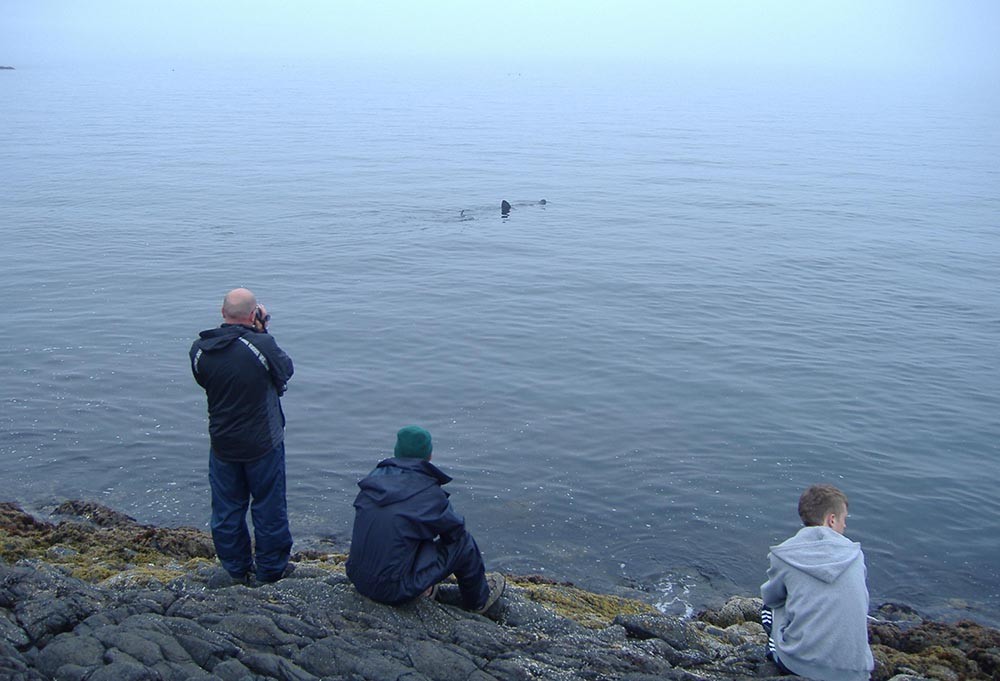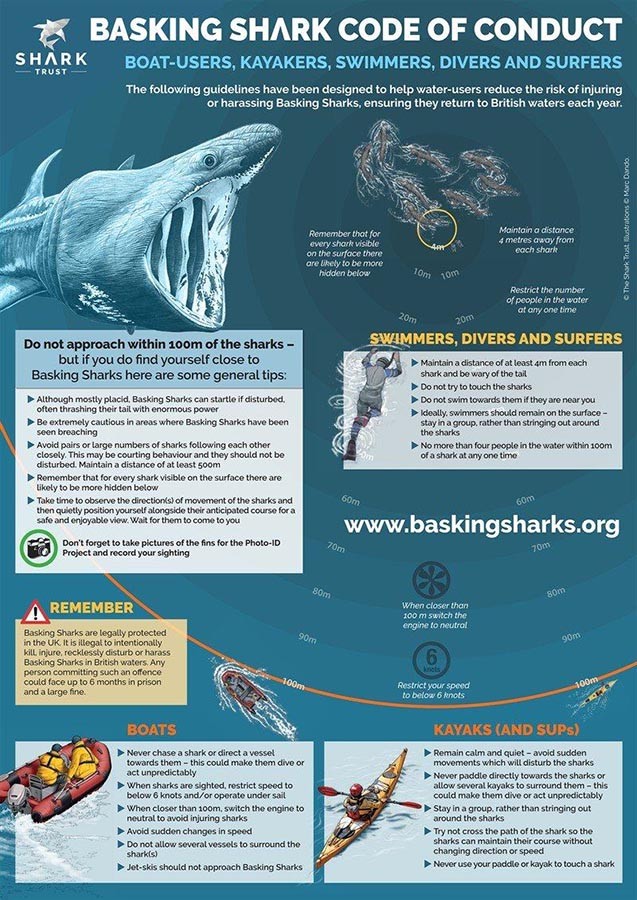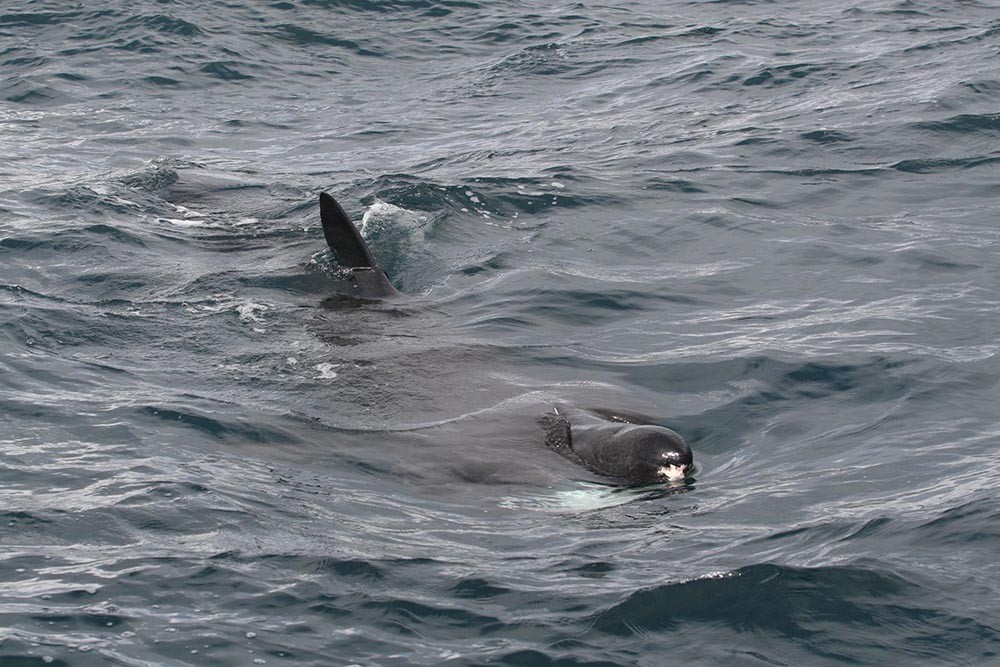
An appeal has issued to anyone encountering basking sharks off the west coast to maintain social distancing and to respect their space.
The West Clare Wildlife Club (WCWC) has made the appeal following numerous sightings of the shark along the Clare from the Shannon Estuary to Galway Bay.
A significant number of sightings of these majestic fish, the second largest to swim in our planet’s oceans, have been reported close to the shoreline at several locations over a large area over the past week. Groups of up to 10 have been reported at the surface from Loop Head to Quilty, Doonbeg to Spanish Point and off Fanore to the north of the County.
Growing up to 10-12m and weighing up to 3-4 tonnes they occur in huge numbers in inshore Irish waters in the spring to feed on blooms of zooplankton.
While basking sharks are seen every spring off Co Clare, the fine weather with sunshine and calm seas and maybe people a little more attuned to nature in these unprecedented times, seems to have led to more sightings than usual and for a longer period.

Dr Simon Berrow, PRO of the West Clare Wildlife Club and founder member of the Irish Basking Shark Study Group, a group of researchers on the island of Ireland studying these fascinating and yet elusive animals, has expressed some concern over the number of people swimming with these sharks and the potential disturbance.
Dr Berrow said: “While there is no law against swimming with these sharks as they are not protected in Irish waters, we would ask swimmers, boats and kayakers to respect social distancing so as not to disrupt the sharks natural behaviour.”
“For basking sharks the recommended social distancing is 4m not the 2m as required by our species. The WCWC recommends not entering into the water to swim, but admire them from the shore,” he added.

Basking sharks are provided with no protection in Irish waters, apart from an EU ban on capture and landing even if caught accidentally. It is illegal to will-fully disturb or interfere with basking sharks in the UK including Northern Ireland and Codes of Conduct have been published to reduce potential negative impacts of swimmers and boats.
“While we would recommend not swimming with basking sharks if in the water or in close proximity, the key is not to approach within 4m of the sharks. If you position yourself correctly in the water and stay still, they will swim past you very close, without realising you are there. Please don’t try and touch them. We want to avoid disrupting their behaviour, especially feeding.
If they close their mouth because you are too close, you are impacting negatively on their ability to take on enough food during this important feeding period in inshore waters. Some aggregations are thought to be part of their courtship behaviour and disturbing them during this very important part of their life cycle could lead to unknown consequences,” Dr Berrow said.